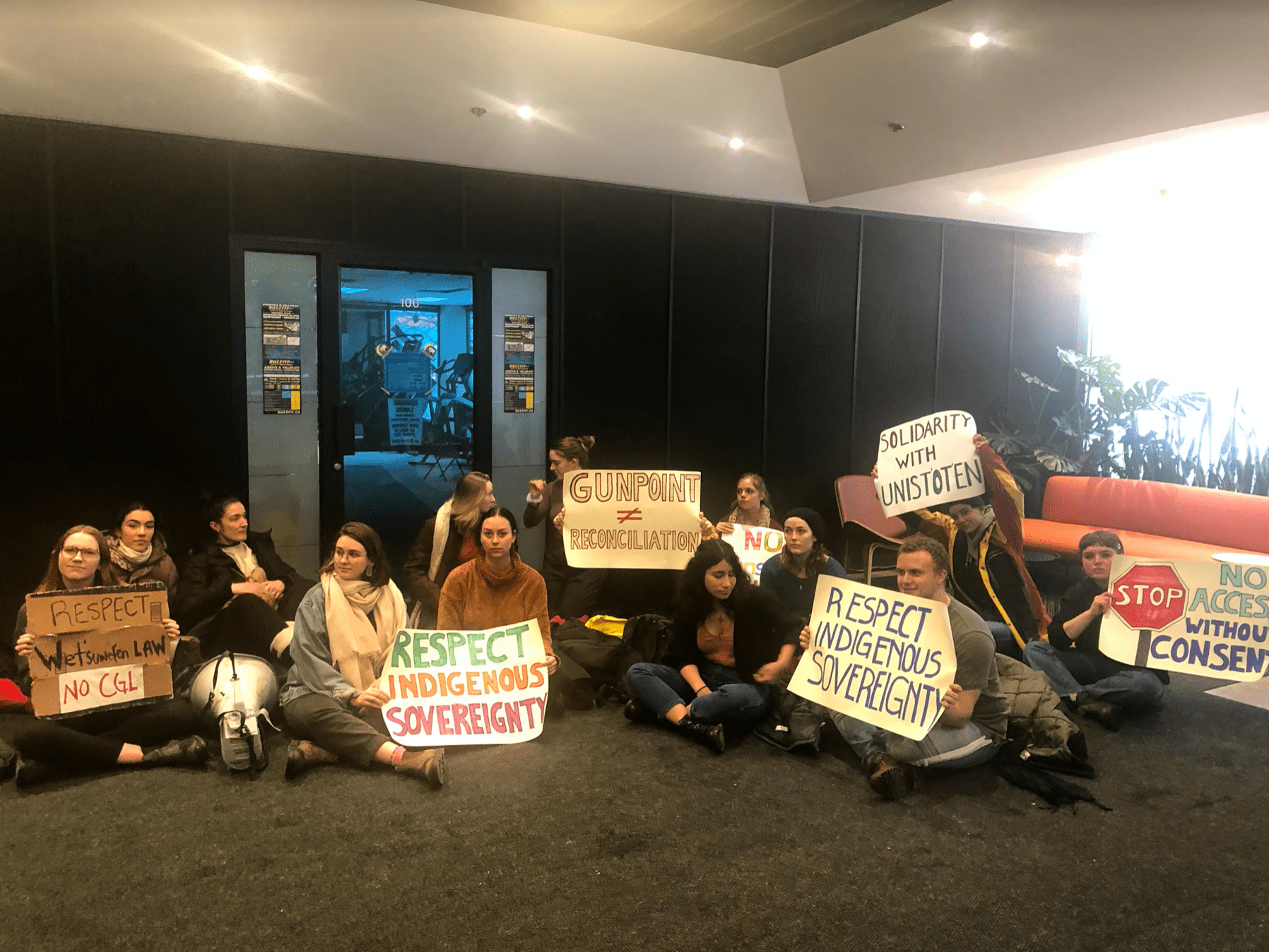Across Canada, students are mobilizing in solidarity with the Wet’suwet’en Nation in British Columbia (BC) that is resisting a Coastal GasLink pipeline project. The Royal Canadian Mounted Police (RCMP) raided and arrested protestors late on Feb. 6, enforcing a Dec. 31 2019 Supreme Court ruling that granted Coastal GasLink an expanded injunction. On Feb. 7, McGill students organized a sit-in at Prime Minister Justin Trudeau’s constituency office in Villeray.
Catie Galbraith, co-Chair of the Indigenous Student Alliance and member of the Chickasaw Nation of Oklahoma, explained how the sit-in is part of larger resistance movements across Canada and the US.
“We’re here sitting in today in solidarity with the Wet’suwet’en and all the other folks who are resisting the RCMP on their land, we’re here as part of a broader solidarity movement,” Galbraith said. “There’s been a number of Indigenous solidarity movements across Turtle Island, both in Canada and in the US, so we just wanted to do what little we can while we are […] here so far away [from B.C.]”
Ella, a recent McGill graduate and organizer of the sit-in, described the planning and purposes of the demonstration.
“[A sit-in] was the only thing I could do this morning, to be somewhere to show Canada somehow that I hate [Canadian authorities], or that I’m unhappy with how […] they are not listening to Indigenous folks,” Ella said. “I need to be here, I need to be somewhere [We] stand in solidarity with the Wet’suwet’en peoples, and fuck the RCMP.”
Ella went on to explain that the sit-in was not a protest.
“We’re not protestors,” Ella said. “This is literally my life. I don’t protest. I don’t want my family to die, I don’t want my kin to die, I love my land, and I’m just done.”
Amy Edward, a Kanienʼkehá꞉ka student, believes that the sit-in is a larger movement to both honor their ancestors and protect future generations.
“It’s important to understand that Indigenous peoples are protectors,” Edward said. “We come here today in respect with a good mind and good heart. Even though we are rageful, we, as Indigenous peoples, always will remain respectful because that’s the way of our ancestors [We] are strengthened by the people seven generations before us, and our actions are for the goodness and the wellbeing of our kin seven generations from now. We’re not acting just for the peoples of today: We act for the wellbeing of our future.”
The sit-in is only one example of the numerous displays of solidarity with the Wet’suwet’en Nation on-and-off campus. Extinction Rebellion Quebec held a demonstration that started in Kanesatake and marched to the Montreal RCMP office. The day after the initial RCMP raids of Feb. 7, there was a vigil at Place des Arts. Most recently, on Feb. 10, there was another sit-in at Trudeau’s constituency office from 3 – 5 p.m. According to Galbraith, Indigenous resistance is stronger than ever.
“Between this, and between the Oka Crisis, and all of the incredible displays of sovereignty, I think we’re at a turning point where Indigenous people are stronger now than they’ve ever been in terms of asserting their sovereignty,” Galbraith said. “Everyone should pay attention and support however they can.”
Galbraith explained the numerous ways students can continue to support the Wet’suwet’en Nation in their efforts against Coastal GasLink, the RCMP, and the Canadian government.
“Call your [Member of Parliament], call the BC RCMP office, call the government, call anybody you can, call any of your representatives, and if you are capable, offer financial support […] to the Unist’ot’en camp,” Galbraith said. “Raise awareness through social media [and] get the word out.”








